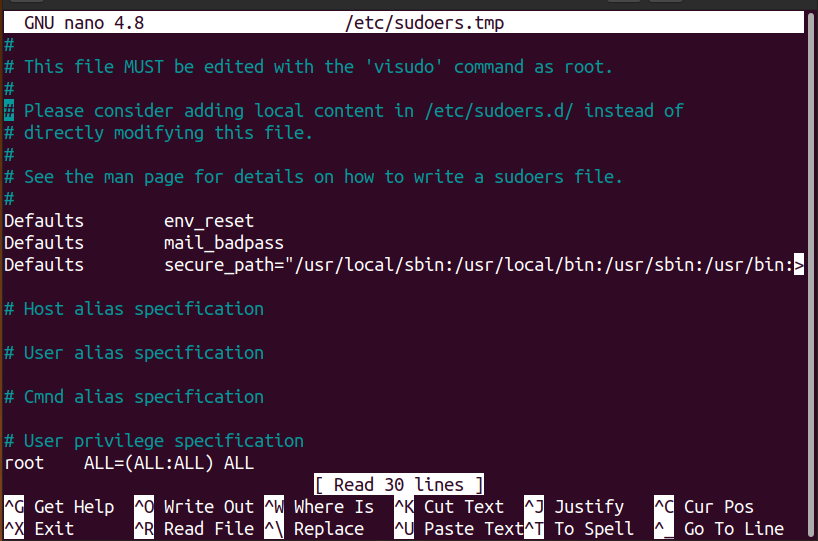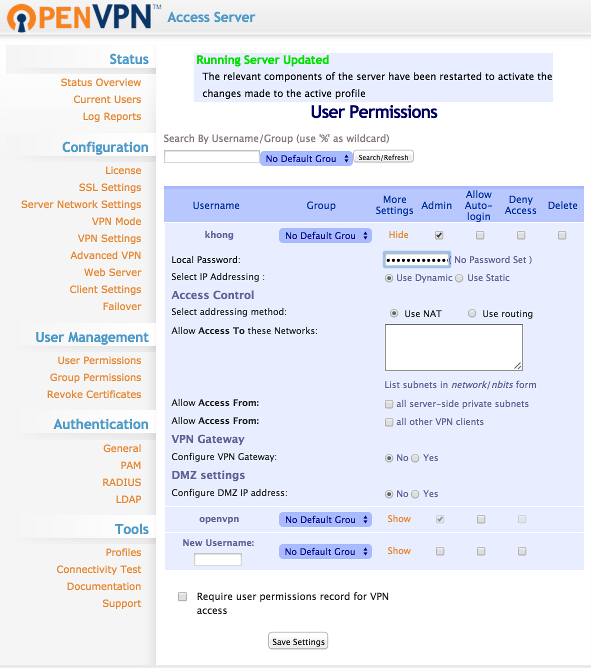
- Run openvpn with sudo without password install#
- Run openvpn with sudo without password 64 Bit#
- Run openvpn with sudo without password update#
- Run openvpn with sudo without password software#
rwxr-xr-x 1 jas jas 232K libaccurl.so.4.3.0 rwxr-xr-x 1 jas jas 436K libacciscossl.so rwxr-xr-x 1 jas jas 2.6M libacciscocrypto.so

rw-r-r- 1 jas jas 164 cisco-anyconnect.directory rwxr-xr-x 1 jas jas 502 anyconnect_uninstall.sh rw-r-r- 1 jas jas 83K An圜onnectProfile.xsd rw-r-r- 1 jas jas 6.6K An圜onnectLocalPolicy.xsd

~/Downloads]$ tar -xzvf anyconnect-predeploy-linux-64-7-k9.tar\ 6.59.23\ AM.gzĪnyconnect-7/vpn/sktopĪnyconnect-7/vpn/cisco-anyconnect.directoryĪnyconnect-7/vpn/pixmaps/company-logo.pngĪnyconnect-7/vpn/pixmaps/cvc-configure.pngĪnyconnect-7/vpn/pixmaps/cvc-disconnect.pngĪnyconnect-7/vpn/pixmaps/systray_connected.pngĪnyconnect-7/vpn/pixmaps/systray_disconnecting.pngĪnyconnect-7/vpn/pixmaps/systray_notconnected.pngĪnyconnect-7/vpn/pixmaps/systray_quarantined.pngĪnyconnect-7/vpn/pixmaps/systray_reconnecting.pngĪnyconnect-7/vpn/pixmaps/downloader-arrow.pngĪnyconnect-7/vpn/An圜onnectLocalPolicy.xsdĪnyconnect-7/vpn/VeriSignClass3PublicPrimar圜ertificationAuthority-G5.pemĪnyconnect-7/dart/sktopĪnyconnect-7/dart/cisco-anyconnect-dart.directoryĪnyconnect-7/dart/nuĪnyconnect-7/posture/posture_uninstall.sh Note you might have to put in some back-slashes because the download file apparently comes with spaces in the file name these days: From the command prompt, go to the directory you saved the file to, and unpack it and run, just like the OIT instructions.If you see a '386' somewhere, then you are on a 32-bit machine. $_As you can see from the above example, my machine has a 64-bit Intel (x86_64) based processor. But if you are unsure, just run the uname command like this: $ uname -a
Run openvpn with sudo without password 64 Bit#
Run openvpn with sudo without password install#
$ sudo apt-get install lib32z1 lib32ncurses5
Run openvpn with sudo without password update#

Thanks to several for the help getting here. I'd love to hear that it helped someone and/or any improvements that could be added. Please do write me to let me know how it went for you, and/or with any suggestions. It should work for most or all Debian-derived distributions through 9.0 ("Stretch"). I originally wrote this "How-To" for Ubuntu v10, and have updated it through v17.04.
Run openvpn with sudo without password software#
OIT has a good general VPN-Linux page with instructions on setting up the Cisco An圜onnect VPN client software for Linux, but I got tripped up in a couple of places and thought I'd pass on some heads-ups for other Debian and Ubuntu users. (Note: There is also an alternative method of installing UCI VPN support without using the Cisco client, but using the built-in Debian/Ubuntu openconnect and openvpn drivers, should you find the below method does not work for you, or if you prefer to use open-source non-proprietary software.) Introduction Installing and using the Cisco An圜onnect client with Ubuntu for UCI VPN Installing and using the Cisco An圜onnect client with Debian and Ubuntu for UCI VPN


 0 kommentar(er)
0 kommentar(er)
